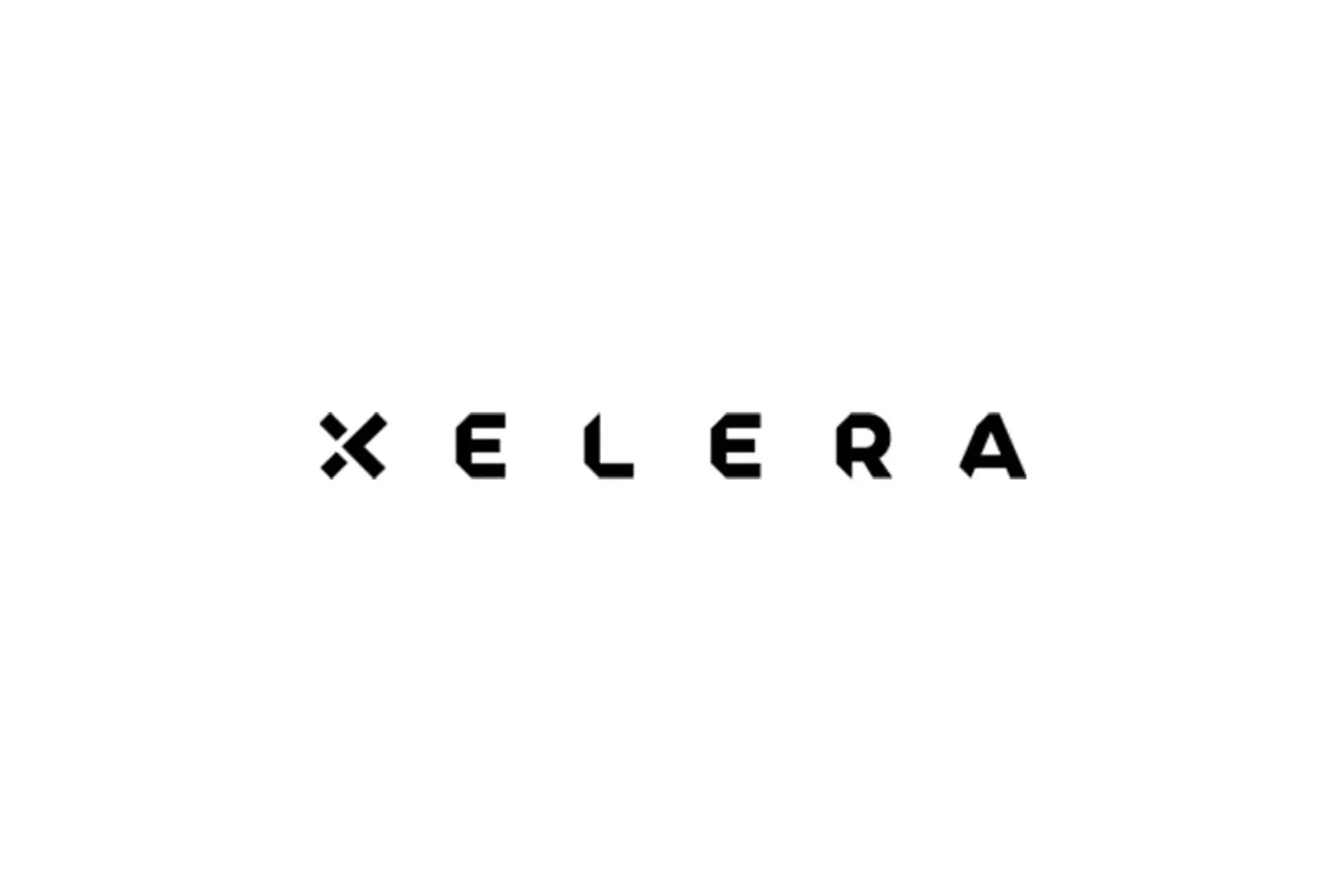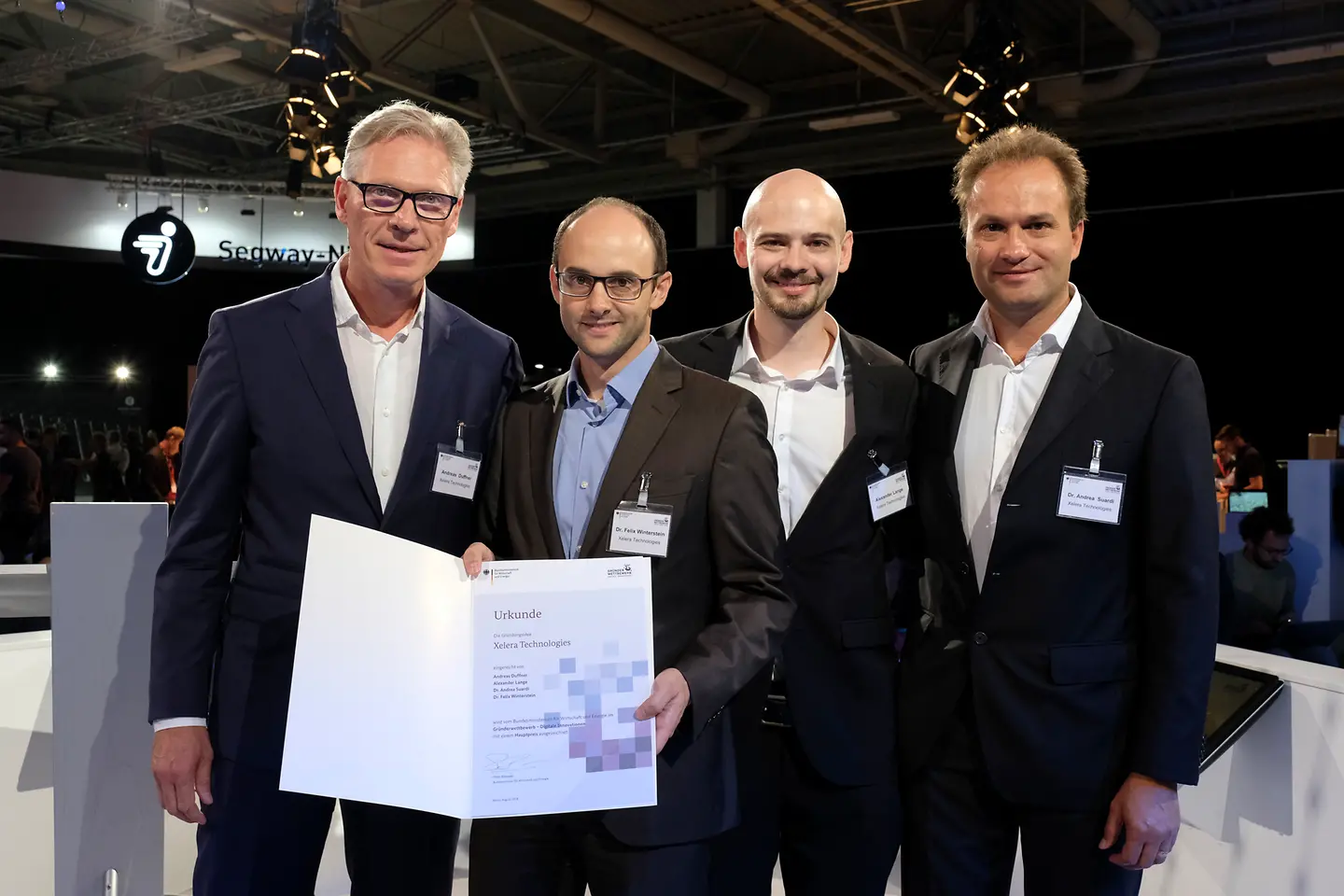

The founders of Hessian start-up Xelera have developed middleware that greatly accelerates data processing. The best thing: Computing-intensive algorithms are processed in freely programmable circuits, so-called Field Programmable Gate Arrays (FPGAs). These are hardware cards that can be individually programmed depending on the intended use. In this way, they process tasks within a server considerably faster than standard hardware and thus considerably accelerate applications.
“However, most companies don’t have the necessary know-how to use FPGAs profitably. Individual configuration also costs a lot of time and money,” says Xelera founder Dr. Felix Winterstein. The hardware-independent solution from Xelera, on the other hand, is simply booked by companies as a service. There’s no need for specialist knowledge about programming hardware cards. With the Xelera solution, companies can accelerate their processes by up to a factor of 100, depending on the application.
The capacities from the Open Telekom Cloud allow us to set up our accelerator quickly in the cloud and configure it according to the customer’s application scenario, for example accelerating standard databases such as SAP.
Dr. Felix Winterstein, founder at Xelera

What do blockchain, artificial intelligence and self-driving cars have in common? According to Gartner, they are all among the top IT trends of 2019 – and they all require enormous computing capacities. That isn’t just something that has existed since 2019 – even conventional processes in companies require ever more powerful IT resources that can perform computing operations more and more quickly.
“More and more processes are running in real time, whether it's manufacturing, transport, logistics, automotive or services. In addition, there are all the sectors that deal directly with end customers, such as retail,” says Xelera co-founder Andreas Duffner. That translates into a lot of potential work for the Xelera suite, which shows its strengths in areas such as Edge Computing and IoT applications. For example, the control of industrial robots often results in excessively high latencies. With the help of the Xelera accelerator, these delays can be significantly reduced.

Companies book Xelera's middleware as a service and operate it in their own data center – or in the Open Telekom Cloud. To make the most of the potential of its middleware as an application accelerator, Xelera relies on the fp1c.2xlarge FPGA flavor and the e2.3xlarge large memory flavor from Deutsche Telekom's Elastic Cloud Server offering. "The capacities from the Open Telekom Cloud allow us to set up our accelerator quickly in the cloud and configure it according to the customer's application scenario, for example accelerating standard databases such as SAP," says Dr. Felix Winterstein.
The Open Telekom Cloud was the start-up’s first choice due to its multi-certified and GDPR-compliant data centers in Germany. Xelera relies on Telekom's fast network for the connection and thus obtains the best possible connectivity with very low latencies for business-critical real-time applications.
With its middleware, the start-up now accelerates processes in a wide range of areas – from market forecasts or risk calculations in the financial sector to real-time analysis of customer behavior in the retail sector and genome analyses in medicine. It’s a solution with great potential that doesn’t interest the start-up’s customers: Xelera recently qualified for Deutsche Telekom's TechBoost start-up program.
Field Programmable Gate Arrays (FPGAs) are Xelera's main focus: The start-up has developed middleware that shortens application computing times by up to a factor 100 – ideal for real-time analysis or the control of industrial robots. To do so, the Hesse-based company uses resources from the Open Telekom Cloud.
Link to the website

Honored in the BMWi founders' competition: Andreas Duffner, Dr. Felix Winterstein, Alexander Lange, and Dr. Andrea Suardi (from left to right) from the FPGA start-up Xelera.